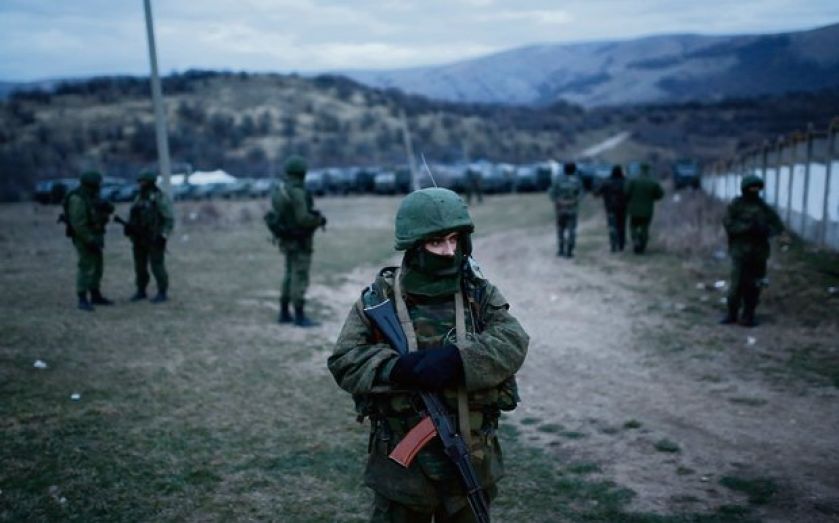There’s a cost to doing nothing in Ukraine

IN RESPONSE to Russian forces entering the Crimea, the interim Ukrainian government called for UK and US intervention, invoking the undertakings we (and the French, and latterly Nato) gave to protect Ukraine’s territorial integrity. Yesterday, William Hague went to Kiev to tell the Ukrainians to their faces that we’re not coming – “no military options [are] on the table”.
Obviously, a military conflict between the West and Russia would be highly damaging. But is failing to back up threats and undertakings with action costless, either? What if the Russians invaded Ukraine’s neighbour Poland? Or if China invaded Taiwan, Korea or Japan? How safe, for example, are investments in other countries whose security the West “guarantees”?
We should probably not overstate the security credibility damage elsewhere of not defending Ukraine. The Russian action is clearly intertwined with the Ukrainian revolution, the interim and disputed authority of the current government, along with the fact that the region Russia has entered had voted for the democratically-elected, but now overthrown, Ukrainian leader Viktor Yanukovych. The West’s reaction to a Russian invasion a year ago might have been very different. Perhaps an interim Ukrainian government under the current circumstances could never have reasonably assumed it would have Western military support. Not defending the Ukraine sets no real precedent for Poland or Taiwan.
Yet just because we do not feel honour-bound to send military forces does not mean the West must sit idly by while Russia acts. Economic punishment for Russia remains possible.
The UK government appears to hope to contain Russian action to the Crimean region itself. If that is the extent of the crisis, perhaps all we shall see will be the temporary freezing of the assets of wealthy Russians abroad, exclusion of Russia from the G8, no Western diplomats at the Paralympics, visa bans on senior Russians, and the stalling of trade talks. Such actions may be laughed at as purely symbolic, but they do symbolise disapproval without being much more than a passing irritation.
If, on the other hand, the situation deteriorates into all-out war and a Russian invasion of the Ukrainian-speaking areas of the country, we can expect more extensive sanctions. Perhaps permanent freezing or even extraction of Russian assets abroad (e.g. in Cypriot banks), a ban on US and EU companies doing business with Russian firms (as per Iran), a refusal to purchase gas from Russia, even the closing, by Turkey, of the Dardanelles to Russian shipping (as happened in 2008 over Russia’s actions in Georgia).
All that could have huge repercussions for the Russian economy and for the West. Ukraine would surely default on its debts. Russia might as well. Wheat imports to the EU from the Ukraine might cease, raising food prices. Oil prices could sky-rocket, and Western Europe might see a “race to shale”. Banking crisis might resume. Trade and investment in the eastern Mediterranean would be seriously impaired. Russia may become less constrained in conflict zones like Syria. And whose side would China take?
All of this would be expensive, at a time when Western economies are still struggling to recover from 2008. But if we did nothing, would you want to live or invest in Belarus or Moldova or…Estonia?
Andrew Lilico is an economist.